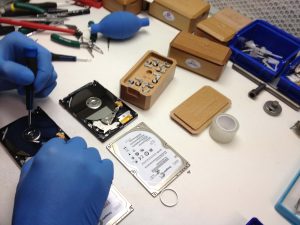- Introduction to computer forensics
- Skills required for computer forensics
- Education and certifications for computer forensics
- Tools and software used in computer forensics
- Steps to follow during a computer forensics investigation
- Real-life applications of computer forensics
- Challenges and opportunities in the field of computer forensics
- Conclusion and next steps for aspiring computer forensics experts
Introduction to computer forensics
Computer forensics is the application of investigative and analytical techniques to identify, collect, examine and preserve digital evidence that can be used in legal proceedings. It involves the use of various tools and techniques to recover information from digital devices such as computers, smartphones, and other electronic storage devices. The field of computer forensics has become increasingly important in recent years due to the rise in cybercrime and the need to identify and prosecute those responsible for such crimes.
Skills required for computer forensics
Computer forensics experts require a range of skills to be effective in their work. These include technical skills such as knowledge of computer systems and networks, as well as analytical skills to interpret and evaluate digital evidence. In addition, strong communication and report-writing skills are necessary to present findings to clients or in court. Attention to detail and the ability to work under pressure are also critical skills for anyone looking to pursue a career in computer forensics.
Education and certifications for computer forensics
Education and certifications are important for anyone looking to become a computer forensics expert. A degree in computer science, information technology, or a related field is a good starting point. In addition, certifications such as the Certified Computer Examiner (CCE) or the Certified Forensic Computer Examiner (CFCE) can demonstrate a candidate’s expertise and dedication to the field. Continuing education is also important in this rapidly evolving field to stay up-to-date on the latest tools, techniques, and legal requirements.
Tools and software used in computer forensics
Computer forensics experts use a variety of tools and software to collect and analyze digital evidence. These can include hardware tools such as write blockers and imaging devices, as well as software tools such as EnCase, FTK, and Sleuth Kit. Open-source tools such as Autopsy and The Sleuth Kit can also be effective in certain situations. It is important for computer forensics experts to have a deep understanding of the tools and software available to them and to use them effectively to collect and analyze evidence.
Steps to follow during a computer forensics investigation
Computer forensics investigations typically follow a standard set of steps. These include identifying the scope of the investigation, collecting and preserving evidence, analyzing the evidence, and presenting findings. It is important for computer forensics experts to follow these steps carefully to ensure that evidence is collected and analyzed in a manner that is legally defensible.
Real-life applications of computer forensics
Computer forensics has a wide range of real-life applications. It is frequently used in law enforcement investigations to identify and prosecute cybercriminals. It is also used in civil litigation to recover evidence in cases such as intellectual property theft or data breaches. Companies may also use computer forensics to investigate employee misconduct or to recover lost data. The field of computer forensics is constantly evolving to meet the needs of these and other real-world applications.
Challenges and opportunities in the field of computer forensics
The field of computer forensics presents both challenges and opportunities. One of the biggest challenges is keeping up with the rapidly evolving landscape of technology and cybercrime. As new technologies emerge, computer forensics experts must stay up-to-date on the latest tools and techniques to effectively investigate and analyze evidence. However, this also presents opportunities for those looking to pursue a career in computer forensics. The demand for experts in this field is expected to continue to grow as cybercrime becomes more prevalent and the need for digital evidence increases.
Conclusion and next steps for aspiring computer forensics experts
Computer forensics is a fascinating and challenging field that offers a range of career opportunities for those with the right skills and qualifications. If you are interested in pursuing a career in computer forensics, it is important to focus on developing the necessary technical and analytical skills, as well as staying up-to-date on the latest tools and techniques. Pursuing a degree in a related field and obtaining relevant certifications can also help demonstrate your expertise and dedication to the field. With the right combination of skills and qualifications, a career in computer forensics can be both rewarding and fulfilling.



